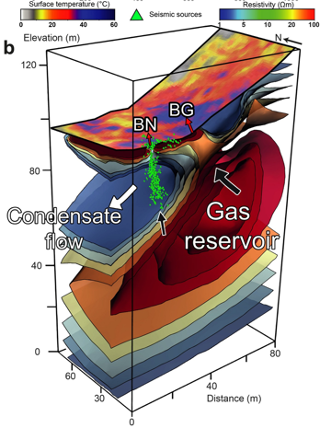
Third Specialized Short Course: Data Analysis and Pattern Recognition





The school focused on geophysical data inversion and numerical modeling, by exploring both theoretical and practical aspects of these techniques. Examples from seismic and acoustic source estimations, volcano deformation, and volcano imagery using seismology and magneto-tellurics were used. The school also compared physics-based and data-driven inversion approaches, as well as new hybrid inversion methods incorporating deep learning and physical laws. Additional soft-skill elements of training included project management, research leadership, and effective communication.
A field trip to the Giant’s Causeway, on the coast of Northern Ireland, was organized to observe interlocking basalt columns. The field trip was led by Dr Michael J. Simms, Senior Curator of Geology at National Museums Northern Ireland, and Dr Mark Cooper, Chief Geologist at the Geological Survey of Northern Ireland (GSNI).
On the 17th of May an IMPROVE Open day was held in the Foy Centre in Carlingford, engaging primary and secondary school students as well as the local community. The day attracted a total of 213 primary school students, their teachers, and members of the public. The school students presented experiments and measurement in seismology, rock magnetics, buoyancy, wave propagation, using a variety of materials from natural rocks to different fluids. The teachers and staff commented on how organized and well run the Volcano Open day was. Overall, it was a highly successful and beneficial public outreach event.
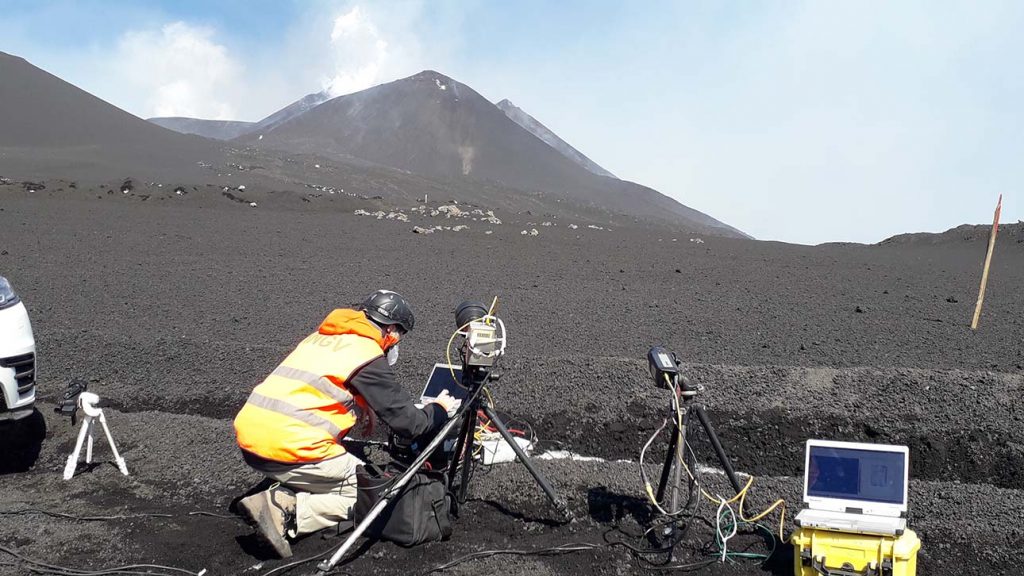
IMPROVE is a H2020 Marie Sklodowska-Curie Innovative Training Network for the next generation of European volcanologists. Early Stage Researchers in IMPROVE are trained while developing research on quantitative volcanology, from innovative monitoring and prospecting to advanced lab experiments, High Performance Computing, Machine Learning and Artificial Intelligence. IMPROVE organizes schools, short courses, and other training and scientific meetings open to participants from outside the network.
The Etna school aims at introducing the students to the analysis of data from multiparametric volcano monitoring networks. The school is focussed on exercises and practice: frontal lessons are kept to a minimum, and they are addressed at providing the fundamental understanding necessary for a conscious use of processing tools and computational instruments which will constitute the core of the activities. The case studies will make large (but not exclusive) reference to Mount Etna, one of the most active, best monitored, most famous and most intensively investigated volcanoes in the world. The technical and scientific contents above are complemented by lessons on European standards for data management and policies, and on planning, engineering and testing new instruments for volcano monitoring.
All students are asked to bring a poster on their research activity, and present it in dedicated sessions.
| July 23 | Arrivals (late afternoon) & ice-breaker |
| July 24 | Volcano deformation: theory and exercises Late afternoon students’ posters & wine session. |
| July 25 | Volcano degassing: theory and exercises Late afternoon students’ posters & wine session. After-dinner presentation of the field excursion. |
| July 26 | Field excursion on Mount Etna. |
| July 27 | Volcano seismicity: theory and exercises Afternoon training module on the EPOS data portal. Late afternoon students’ posters & wine session. |
| July 28 | Final exercise: simulation of a volcanic crisis. |
| July 29 | Departures in the morning |
Mount Etna (3357 m a.s.l.) is one of the most famous and active volcanoes in the world, and one of the most beautiful to visit and most rewarding to investigate. The eruption activity during last few decades is dominated by the formation of large lava fountains merging into sub-Plinian events with volcanic plumes reaching as high as 15 km above the crater. Quite often that summit activity is accompanied by the generation of lava flows, most of which invade the “Valle del Bove”, a huge depression on the Eastern flank of the volcano representing a major volcano-tectonic feature. Less frequent flank eruptions produce lava flows which menace, and sometimes partially destroy, villages as well as touristic installations.
The volcano monitoring system on Mount Etna is arguably the most developed in the world, with a number of permanent installations approaching 200 and including broad-band seismometers, tiltmeters, dilatometers, gravimeters, GNSS, FTIR and multi-gas sensors, acoustic sensors, visible and infra-red cameras, integrated by satellite imagery (optical and radar) and field observations. The 24/7 volcanic control room at the INGV Etna Observatory in Catania continuously receives Tb of data which are processed in real-time, and is constantly in contact with the regional and national operational rooms of the Italian Civil Protection system.
Comitato organizzativo: Eugenio Privitera, Giuseppe Puglisi, Paolo Papale, Raffaela Pignolo.
Supporto tecnico: Massimiliano Cascone, Patrizia Pantani, Salvatore Consoli, Fabrizio Pistagna.
Each student will pay a contribution to the true costs, amounting to a total of 430 euros to be payed on-site, inclusive of accommodation in double or triple room, breakfast, lunch, coffee breaks, social dinner, school materials, transfer from-to Catania airport at scheduled times, and additional transfers during the school days. The cable car to access the summit area of Mount Etna during the day of field trip costs additional 45 euros, to be payed on-site to the service-providing company.
INGV building, Via Monti Rossi 1
NICOLOSI (CT)/
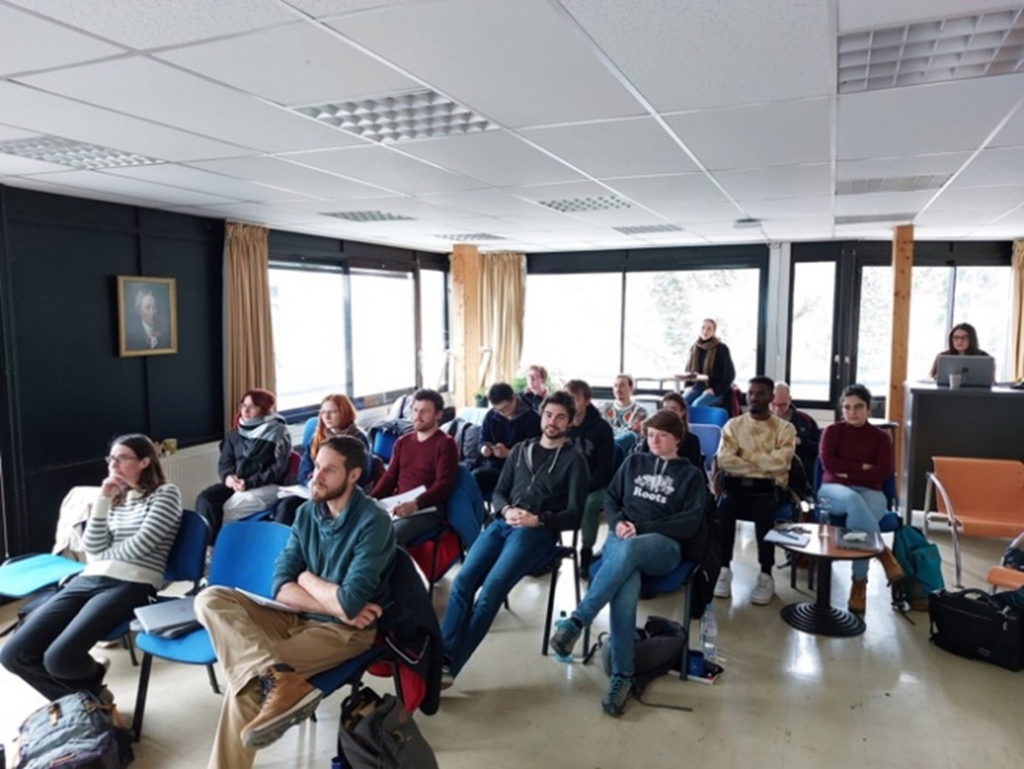
On 21-23 January 2023 at ISTerre, Grenoble (France) took place the first IMPROVE Specialized Short Course. The course was organized an managed by organized by Stéphane Garambois and Jean Vandemeulebrouck. It focused on the new techniques developed in seismology (ambient noise, DAS, covariance techniques), on seismic tomography, on the acquisition and processing of geophysical data from the European data centers and on complementary imaging methods, magnetic, electrical and electromagnetic, applicable to volcanoes and geothermal areas. 9 of the 15 ESRs from IMPROVE project attended this course together with further 8 PhD students from the doctoral school STEP (Sciences de la Terre, de l’Environnement et des Planètes) of University Grenoble Alpes
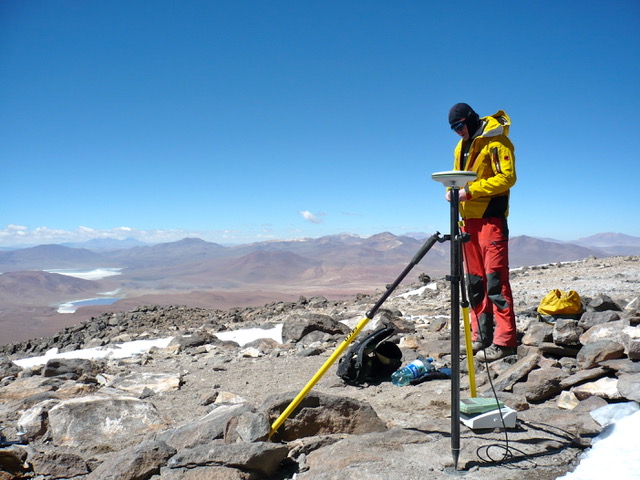
The Second Specialized Short Course on Volcano Geodesy was held at the School of Earth Sciences, University of Bristol (UK) at the end of March. It was organized by Prof. Joachim Gottsmann, and attended by 8 IMPROVE ESRs plus 8 external students.
The course focussed on techniques for monitoring volcano deformation, including ground-based and satellite-based methods, as well as on data interpretation using mathematical modeling and both forward and inverse approaches. The participants were introduced to increasingly complex approaches from analytical to numerical computation and analogue experiments of volcano deformation, and could analyse and test themselves the relevance of different assumptions on crustal mechanics and rheology in determining ground deformation at active volcanoes.
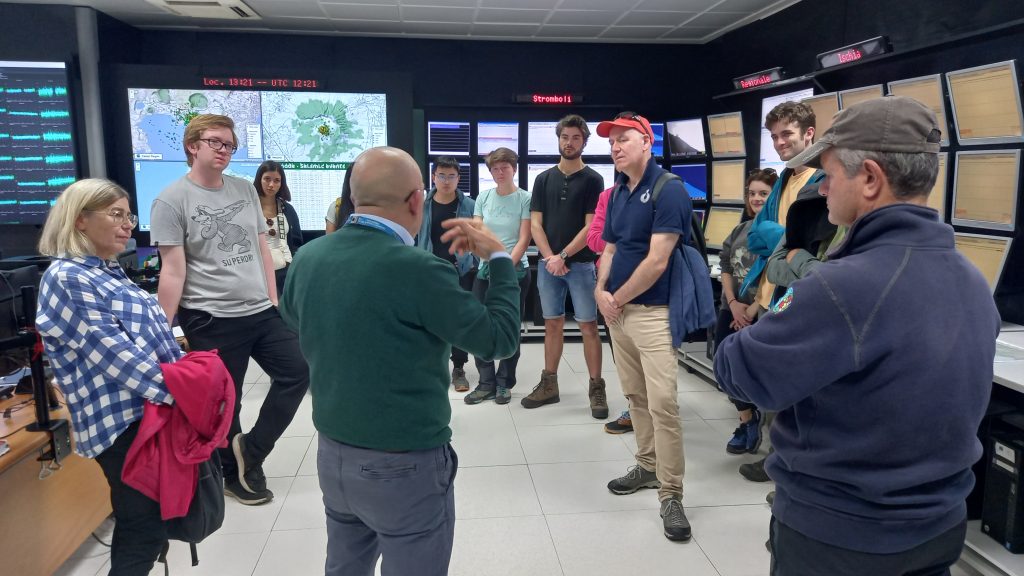
A two-day field trip on November 9-10, 2022, brought the IMPROVE researchers to meeting the Neapolitan volcanoes. Led by Sandro de Vita with the precious support by Domenico Sparice, the field trip developed on Vesuvius first, then on Campi Flegrei. The leading team by the INGV – Osservatorio Vesuviano illustrated the structure, composition, behavior, and volcanic products of these two nearby still different volcanoes – Vesuvius being a quiescent stratovolcano with a summit caldera, and Campi Flegrei a large caldera which has been in a state of unrest during last decades, and from where some of the largest eruptions ever in the Mediterranean and European regions originated. A lesson in the field at the Solfatara crater by Stefano Caliro illustrated the characteristics of the degassing in the area and the reconstructed underground degassing structure. Finally, the Director of the Osservatorio Vesuviano, Mauro Di Vito, kindly introduced the IMPROVE researchers to the modern 24/7 Operational Room where the data from four continuously monitored volcanoes are collected and analyzed.
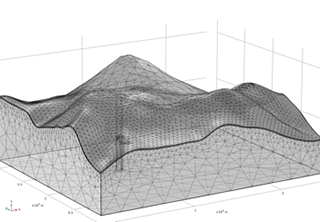
Applications should be sent to Joachim Gottsmann: J.Gottsmann@bristol.ac.uk
Deadline 10 March
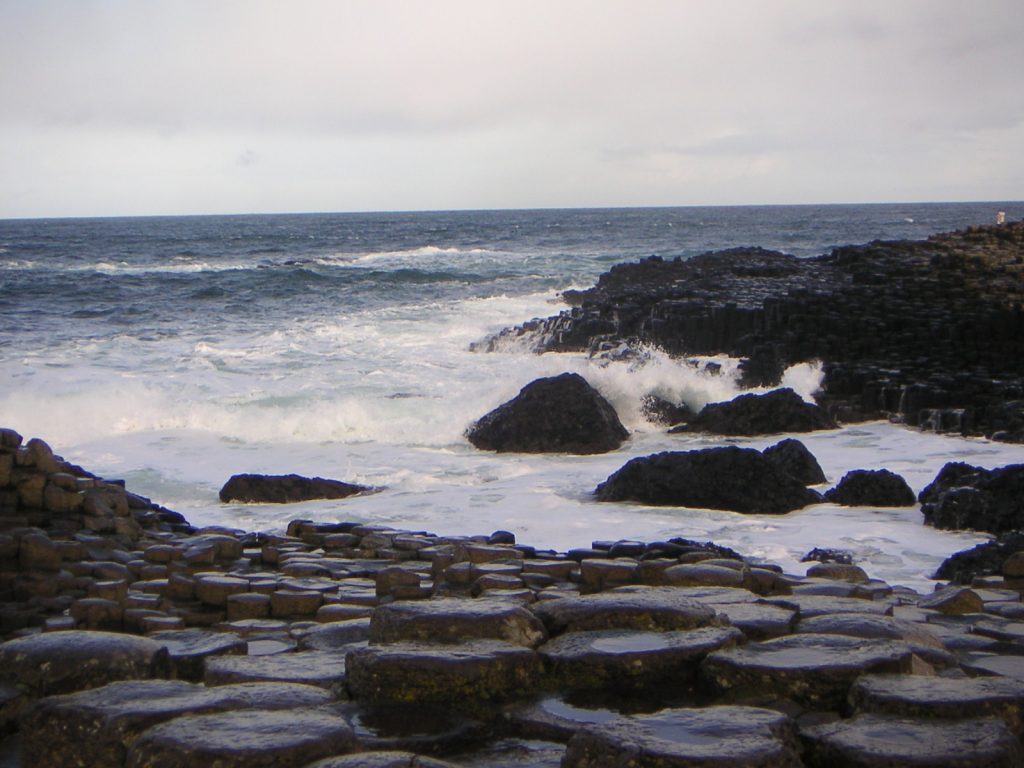
IMPROVE is a H 2020 Marie-Sklodowska Curie Innovative Training Network for the next generation of European volcanologists. Early Stage Researchers in IMPROVE are trained while developing research on quantitative volcanology, from innovative monitoring and prospecting to advanced lab experiments, High Performance Computing, Machine Learning and Artificial Intelligence. IMPROVE organizes schools, short courses, and other training and scientific meetings open to participants from outside the network.
Geophysical data inversion and numerical forward modelling are key elements in the study of volcanoes. Physics based inversion allows the estimation of a population of models by extracting information from observed data, while forward modelling tools can yield a prediction of the expected data, given a model. Combined use of these approaches permit estimates of volcano source parameters and volcano structure. In the Ireland School we will consider theoretical and practical aspects of both data inversion and forward modelling, drawing on examples from seismic & acoustic (infrasound) source estimations, volcano deformation and volcano imagery using seismology and magnetotellurics. We will also briefly consider the relative merits of physics based versus data driven inversion (e.g. Deep Learning – DL), and briefly explore new hybrid inversion approaches where physical laws are incorporated into DL data driven schemes. Finally the School will also cover topics such as project management, research leadership, and good communication.
| May 14: | Arrivals (late afternoon) & ice-breaker |
| May 15: | - Inverse theory: turning data into models; - *Mini workshop on preparing material for Open Day |
| May 16: | - Inverse Theory practicals; - Forward modelling: predicting data from a model; - Sea Kayaking (weather permitting). |
| May 17: | - Forward modelling practicals; - Public Open Day; - **Poster session, BBQ. |
| May 18: | - Field trip to Giant’s Causeway columnar basalts; Co. Antrim |
| May 19: | Open format on: - Project management; - Research leadership; - Good communication; Industry perspectives. |
| May 20: | Departures in the morning |
*Particpants will be expected to collaborate (online) to prepare material in advance of the school.
** Participants are expected to bring a poster outlining their research work.
There will also be a special presentation on the Hunga Tonga–Hunga Haʻapai eruption, as part of the School.
Preliminary list of lecturers: Silvio De Angelis, Duygu Kiyan, Ivan Lokmer, Chris Bean, Paddy Smith, Ka Lok Li, Emma Chambers [… additional lecturers & updates coming shortly]
PhD candidates and early stage post docs with little to no prior knowledge of inversion and forward modelling.
Each student will pay a contribution towards the true costs. This includes accommodation in double or triple rooms, breakfast, lunch, coffee breaks and dinners. The cost of school materials, transfers to and from Dublin airport at scheduled times, field trip and kayaking, will be covered by the IMPROVE Project. The estimated maximum cost is €470 (accounting for possible inflation).
The school is open to a maximum of 15 students, besides IMPROVE fellows. Participants will be selected on the basis of demonstrated relevance of the school for their research and career development.
Deadline for Registration: 3rd April 2023
Information on Acceptance: 10th April 2023
Although Ireland is an EU member state, it is not part of the Schengen travel area. Therefore, it is the responsibility of non-EU citizens to determine if they require a visa to travel to Ireland. Applicants who have been offered a place on the School will be offered a letter of acceptance, if they need one for visa purposes.
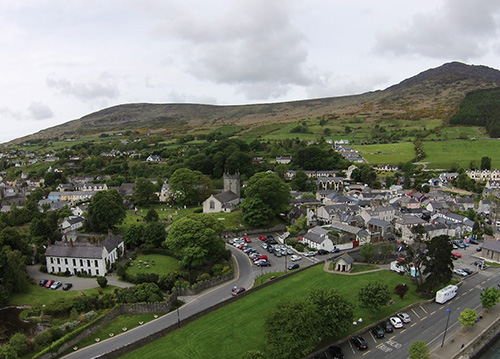
The School will be held in the small coastal village of Carlingford, about half way between Dublin and Belfast.
There is easy access to Dublin airport. The village is vibrant but isolated, ideal for a week of both science and fun.
